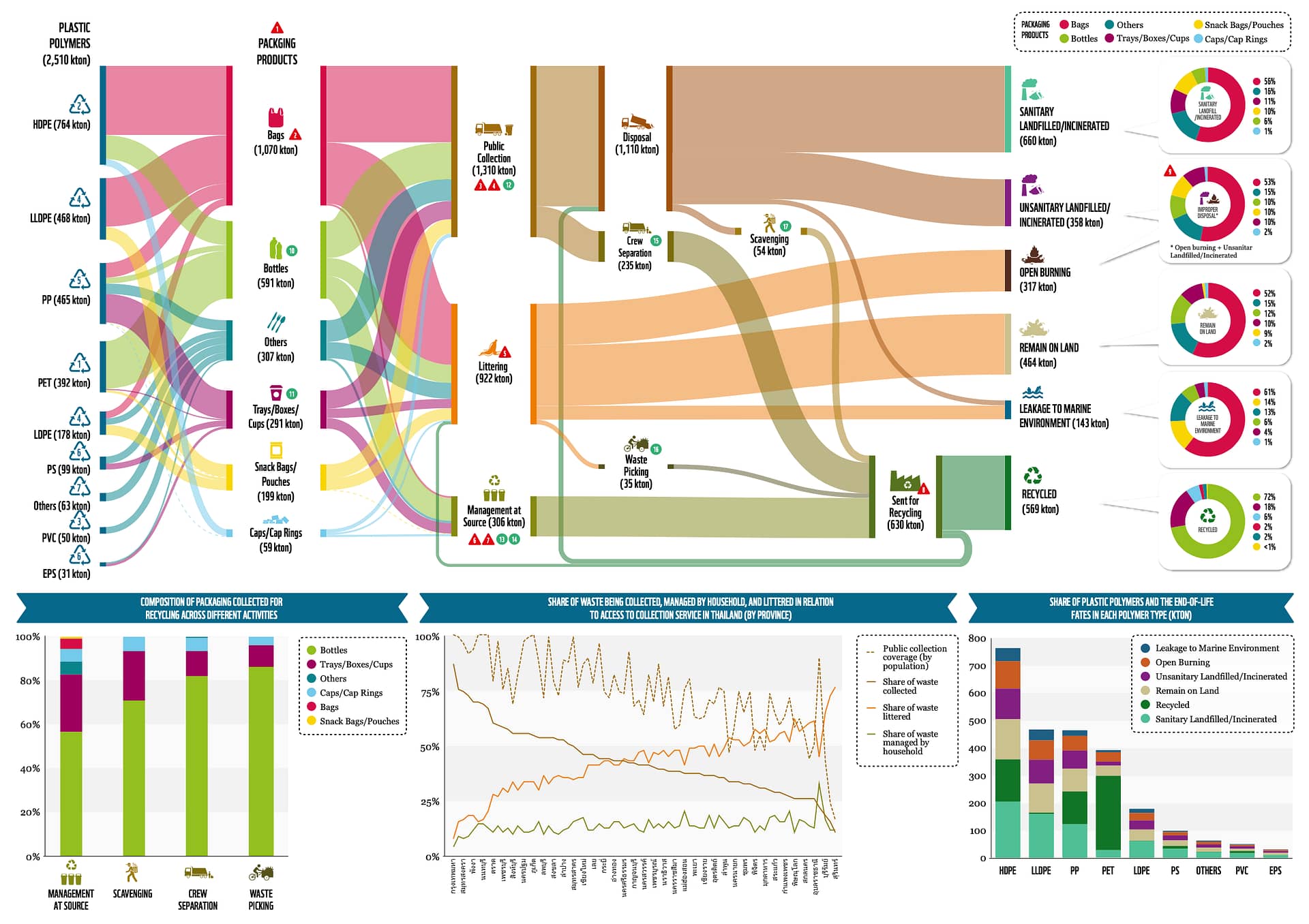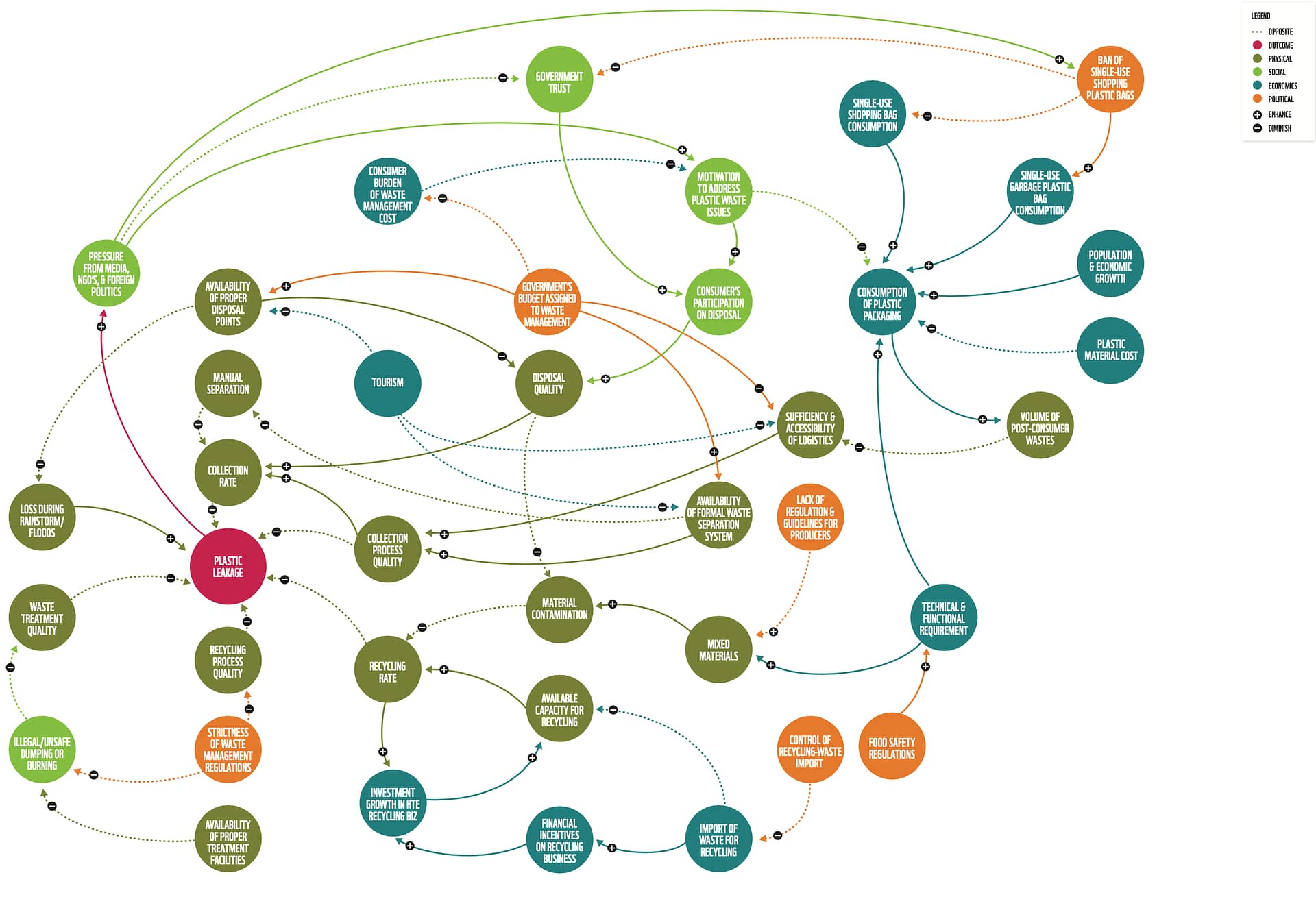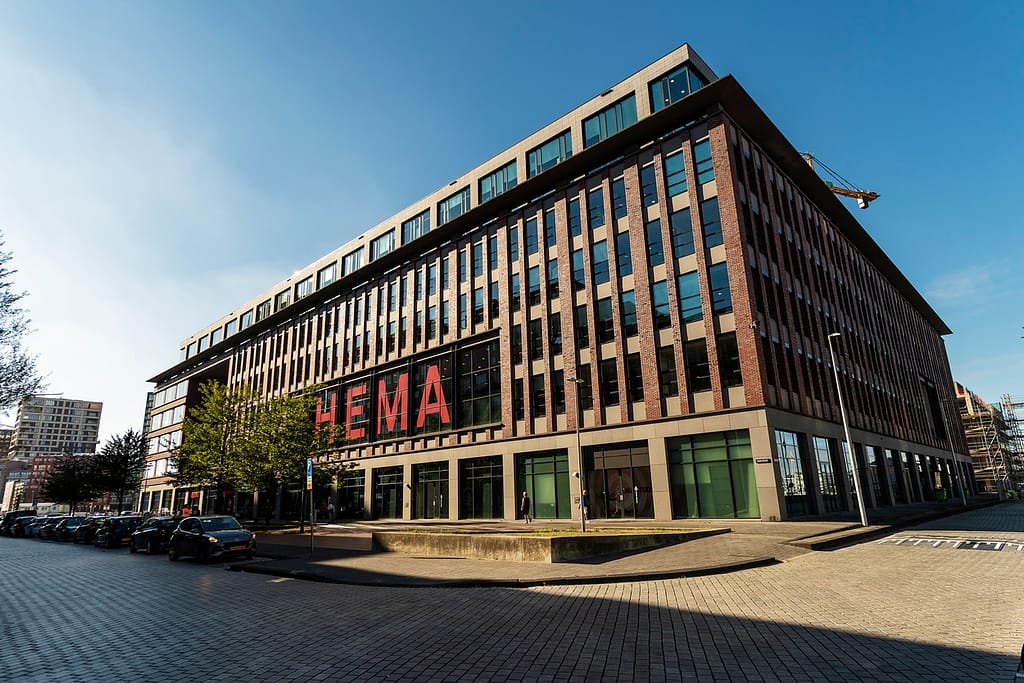Zero Plastic Waste Thailand
A guide for strategic development between government and the private sector for a collaborative, fair, and impactful circular waste management system.
Metabolic partnered with WWF and the Circular Economy for a Waste-Free Thailand group at Mae Fah Luang University to build a science-based approach to building a circular economy for plastics in Thailand. We evaluated the flows of plastic packaging materials and matched the country’s profile with best practices in producer responsibility from around the world. This analysis formed the basis of a stakeholder engagement initiative to build support for a tailor-made producer responsibility approach.
- Partners: WWF Thailand, Mae Fah Luang University
- Client: WWF Malaysia
- Date: November 2020
Lack of comprehensive picture of plastic wastes
Marine litter is a huge global problem, and much of it enters the ocean in Southeast Asia. Despite strong interest from the private and social sectors, many countries in the region have no producer responsibility programs in place. Thailand’s Roadmap on Plastic Waste Management 2018-2030 aims for 100% recycling of targeted plastic wastes, yet there is no comprehensive picture of the flows of plastic waste through the country: Where are they generated? How much is littered, burned, or lost at each stage of the supply chain? Which wastes should be targeted to support the country’s priorities (i.e. zero marine litter, maximum economic value, etc)?
Matching actual material flows with policy options
In collaboration with our partners, we combined quantitative and qualitative analyses to provide a holistic picture of both the current situation of plastic waste flows in Thailand and various producer responsibility options that could improve it. Our quantitative analysis demonstrates the volume of different types of plastic packaging waste that is collected or lost at various stages. This enables us to identify critical hotspots and opportunities to guide the design, implementation, and scaling up of circular plastic strategies. The qualitative analysis covers the current policy landscape in Thailand, interviews with private and social sector stakeholders, and a review of producer responsibility practices around the world.
A two-pronged solution
As part of the Circular Economy Academic Seminar Series in Thailand, WWF shared our two-part document to key stakeholders in collaboration with the Science Research and Innovation Policy Council of Thailand’s Office of National Higher Education as well as the Environmental Research Institute of Chulalongkorn University.
The first part of the document shows how the current characteristics of Thailand’s plastic waste flows and waste management systems can be matched with a variety of proven producer responsibility mechanisms. The second part of the document – the Technical Analysis – more closely addresses the design and implementation of plastic waste management systems and/or circular strategies. It also covers the methodology, data-driven analysis, and key considerations for scaling up circular strategies to meet national targets on zero plastic waste leakage.






"The EPR report provides a very useful baseline reference. We will be utilizing and quoting the EPR report in the upcoming engagements and discussions with various key stakeholders. Moving forward, we will be addressing specific questions on EPR from stakeholders through workshops and discussions."
Jazlyn Lee, SEA regional coordinator, Plastics Circular Economy at WWF






